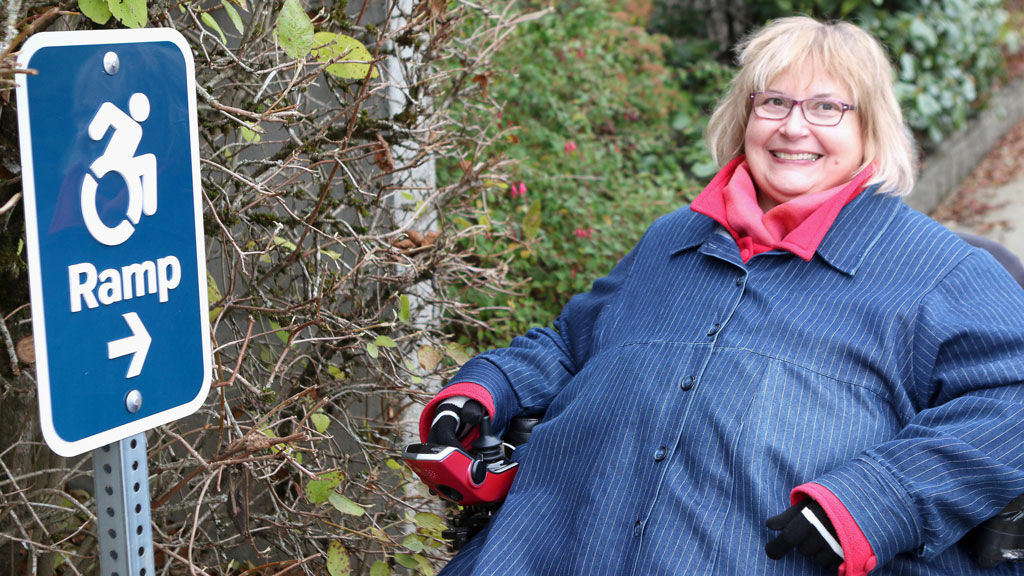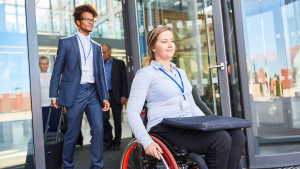NANAIMO, B.C. — New funding from the Rick Hansen Foundation will help Vancouver Island University’s (VIU) Nanaimo campus and the Cowichan Trades Centre build more accessibility infrastructure.
The foundation recently announced $240,000 in funding through the BC Accessibility Grants Program for power door openers, wayfinding signs, grab bars in washrooms and plus size chairs.
The projects will focus on the 12 least-accessible buildings at VIU. The money, which comes from the Ministry of Social Development and Poverty Reduction, will help the institution become more user-friendly for all, explained Dr. Linda Derksen, VIU Universal Access Committee chair, in a press release.
“We have found that improvements for people with disabilities have the effect of making things easier for everyone,” said Derksen. “Power door openers make it easier for people pushing carts or parents with strollers. High-contrast signage with raised letters is meant for people who have low vision, but it also helps anyone who is trying to find their way around campus.”
Also included in these improvements are handrails on ramps, high-contrast signs pointing to accessible routes, hearing equipment at service desks, change tables in washrooms, adjustable desks and rolling workstations.
“We are making hundreds of little changes that add up to making the whole campus much more accessible for a wide range of people,” added Derksen. “About 20 per cent of the working-age population have disabilities, but most of these are invisible. Think of things like ‘bad’ knees and hips, or illnesses like rheumatoid arthritis, multiple sclerosis, fibromyalgia, or conditions like brain injuries and vertigo. Many people who appear to be able bodied have a lot of trouble with our stairs.”
The push to increase accessibility started when Derksen, who had a hip removed in 2012 and uses a power wheelchair, expressed her frustrations at the difficulty of getting around campus to senior administrators. The Universal Access Committee was formed in May 2018 with Derksen as its chair and the group got to work applying for grants to make improvements. Since then, many departments on campus have been working to make their areas more accessible, including information technology, the library, human resources, facilities services, campus development and more.







Recent Comments
comments for this post are closed